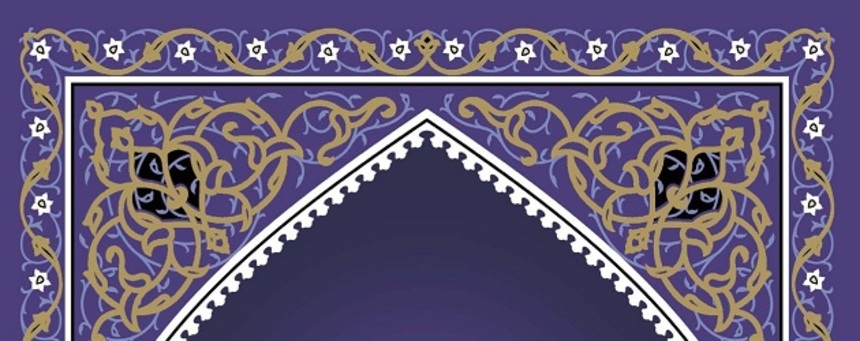Books to be Scene: G. Willow Wilson's ALIF THE UNSEEN

Alif and his friends read the complaints of their coddled American and British counterparts - activists, all talk, irritated by some new piece of digital monitoring legislation or another - and laughed. Ignorant monoglots, Abdullah called them. They had no idea what it was like to operate in the City.What's going on? This doesn't look too festive...
They had no idea what it was like to live in a place that boasted one of the most sophisticated digital policing systems in the world, but no proper mail service. Emirates with princes in silver-plated cars and districts with no running water. An Internet where every blog, every chat room, every forum is monitored for illegal expressions of distress and discontent.
Their day will come, Abdullah had told him once. They will wake up and realize their civilization has been pulled out from under them, inch by inch, dollar by dollar, just as ours was. They will know what it is to have been asleep for the most important century of their history.
That doesn't help us, Alif had said.
No, said Abdullah, but it certainly makes me feel better.
What can I say? I guess I still haven't got the politics out of my system, and a book this great needs talking about.
Okay, here's a pet peeve of mine to set the scene: so much of the attitude towards the Western world's involvement in current affairs boils down, crudely, to "Mind your own business". We don't understand the nuances of and the history behind China's rapid modernisation, or Russia's re-embracing communism in all but name. We're not allowed to talk about them as anything other than something we've heard of at third- or fourth-hand remove, and god forbid we actually offer an opinion. Honestly, go check out The Economist's comments threads some time. It's an education.
If any serious political commentary on breaking news has to consider a whole minefield of potential targets who might be offended, no surprise Western pop culture tends to tiptoe around the same issues. Take the Middle East; we get arty thinkpieces dealing in simple metaphor and broad strokes, gung-go action movies that want you to understand what war's really like, damn it, or embedded reportage that's part elegiac tribute to the fallen, part diary of a nobody.
But you've found something different?
Yup: seen in this context G. Willow Wilson's Alif the Unseen is something of a revelation. This is a richly detailed fantasy that draws heavily from Arab mythology and Islamic religious discourse; a carefully considered treatise on faith, hope and devotion, and also - wait, come back! - a terrific, pacey thriller that's tense, exciting, wickedly funny, deeply moving and very, very human. This is a book with one foot securely in the past and one right on the front lines of the Arab Spring.
Alif is a young man, half Egyptian, half Arab, living in an unnamed city (capital C, if you will) teetering on the edge of revolution. He runs an internet hosting service for dissidents of every kind under threat from Middle Eastern governments, from firebrand Islamic fundamentalists to porn sites. He dreams of a future with the beautiful Intisar, but when she gives him a mysterious book she wants kept safe, Alif discovers a great many people are interested in it, some human, some not so much. Both sides in the conflict, rebels and government security, seem to think the future of the country belongs to whoever gets their hands on it.
So a Western voice came up with something like this?
Well, not just like that. Wilson converted to Islam while at university in Boston, and moved to Cairo to write for the international press as well as a prominent opposition newspaper. Her academic background and her conversion plainly inform a great many of the plot threads in Alif - several characters are wrestling with their faith in one way or another, arguing over the minutiae of Islamic scripture and theological debate. Her depiction of the realities of popular uprising speaks of someone who's lived it, or at least lived among people who've experienced it first-hand.
But the lady's also an established comic-book writer, having worked on multiple properties for DC and Marvel as well as her own projects for DC's acclaimed Vertigo imprint. It's her sense of how to marry the best of pop culture - the life, the humour, the sense of adventure - with a reverence for high art and deep thinking that really makes Alif the Unseen sing. This is an author who understands how to explain the sense of identity, of solace and belonging that religion can offer the faithful, but who also gets that a secret world of fairy-tale monsters come to life is really frickin' cool, as it were.

So it's more than just adolescent wish-fulfilment, right?
Well, duh. It's a phenomenal book, for the most part. Alif himself is a great creation - vulnerable and flawed, eager for something to believe in, but deeply mistrustful of an establishment that's lied to him, cheated him, imprisoned, tortured and murdered people like him for decades. The supporting cast are beautifully sketched in, from major to minor parts - Alif's childhood friend Dina, their fellow dissidents, an American journalist whom Wilson uses to poke fun at herself. Some of the character arcs are somewhat predictable, but no less well written or emotionally affecting.
Wilson never paints Islam as infallible, not even in the sense that the bad guys would be fine if they'd just stop misinterpreting the words of the Prophet. She seems to view faith as essentially ineffable, and concedes humans are liable to do really dumb things trying to get their heads around it, but suggests that if we just calm down and take it slow then we might find some peace of mind in the process and start treating each other better. Hardcore atheists might find it heavy going, and some of her philosophising gets a little shaky, but it's still a thoughtful, affecting look at a divisive subject.
Where do the "really frickin' cool" bits come in?
Oh, seriously, Alif the Unseen is a hell of a ride, one that never lets the big questions derail the story. Wilson clearly has a sense of how self-analysis of this sort can touch on both the sublime and the ridiculous - witness the argument over whether eating virtual pork in an online game goes against one's commitment to Islam - and she also knows how to throw in a great set piece to stop things getting too heavy-handed. There's high drama here, and pathos in spades, but it's also an absolute blast to read.
Again, Alif the Unseen is a great thriller. Several breathless passages with government agents hot on the hero's tail are white-knuckle prose from start to finish. But it's also an absolutely captivating fantasy - Alif's journeys through the other City, a world of dreams, visions and mythical creatures out of Arab mythology, are rendered with an eye for the wonders of the numinous that comes from working with the better class of comic-book writer. It'd look phenomenal on the big screen in the right hands, in more ways than one.
You can't be the only one who's picked up on this.
By no means, thank goodness. But a lot of the existing critical praise describes the book as "Harry Potter meets the Arab Spring", which is a shockingly lazy way to sum it up. This is miles above Rowling's clumsy prose, and has very little in common with her boy wizard. It's Cory Doctorow if he wasn't so horribly contrived; it's crowd-pleasing magic and mayhem but it's also sharp, witty political commentary on the cutting edge. It's fantasy escapism that stimulates your lizard brain but also wants you to contemplate some pretty tricky questions, and even when it doesn't always hit the mark it's still a joy to read.
It'd be a crying shame to pass up the chance to film a work of fantasy with as much love and respect for its source material as Alif the Unseen just because its author wasn't born into the culture and the history she talks about. Anyone with half a brain, regardless of their beliefs, ought to enjoy Wilson's writing both as a fantastic adventure, a thought-provoking essay on issues currently about as contemporary as they come and an elegantly phrased plea for tolerance and understanding, and pretty much all of that would translate beautifully into any medium.
Alif the Unseen, by G. Willow Wilson, published by Emblem (US) and Corvus (EU) is currently available in paperback, hardback and ebook editions.
Images are taken from the European ebook cover art and Wikipedia's photo of protesters in Tahrir Square, Cairo, February 2011.

Do you feel this content is inappropriate or infringes upon your rights? Click here to report it, or see our DMCA policy.






